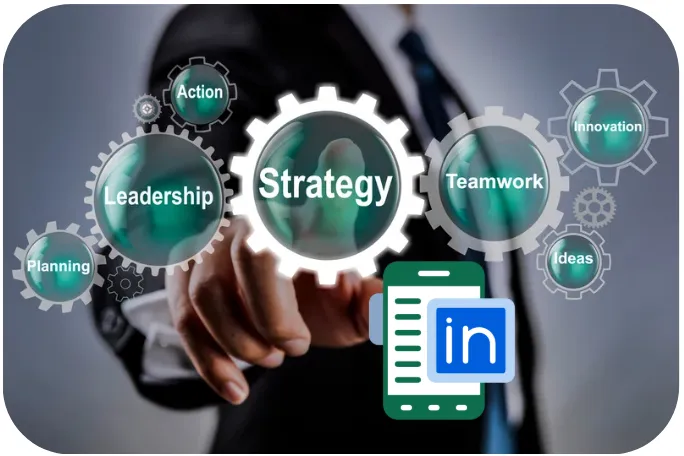
LinkedIn Strategies for IT Professionals Seeking Remote Roles in 2025
If you’re an IT professional looking for remote work in 2025, your LinkedIn profile is just as important as your resume maybe more. In today’s job market, recruiters are using LinkedIn like a search engine, scanning for keywords, projects, and signals that say: “This person is ready to work from anywhere.”
So how do you turn your LinkedIn profile into a remote job magnet?
Here are proven LinkedIn strategies that will help you get noticed, get messages, and get hired for remote IT roles this year.
1. Optimize Your Headline With Remote and Role-Specific Keywords

Your headline should do more than list your job title it should sell your skills and highlight your intent.
Bad example:
IT Support Specialist
Great example:
Remote IT Support Specialist | CompTIA A+ | Ticketing Systems | Cloud Tools | Seeking Remote Opportunities
Use keywords like:
“Remote IT Professional”
“Cloud Support Engineer”
“Help Desk Technician | CompTIA+ | Remote Ready”
Recruiters search by role, certs, and work environment. Make sure your headline hits all three.
2. Write a Summary That Speaks to Remote Readiness

Your “About” section should tell your story, highlight your strengths, and prove that you can work and communicate independently.
What to include:
Who you are and what you specialize in
Tools you use (e.g., Jira, Slack, AWS, Zoom, GitHub)
A few remote-friendly skills: documentation, async workflows, troubleshooting
Career goals: “Currently seeking fully remote IT roles where I can support cloud infrastructure and grow into DevOps.”
Write in the first person. Keep it professional but human.
3. Build a Skills Section That Matches Remote IT Job Descriptions

Go beyond general skills like “Microsoft Office.” Add the tools and platforms recruiters are searching for, such as:
AWS, Azure, or Google Cloud
VPN, Active Directory, Office 365
PowerShell, Python, GitHub
Jira, Confluence, Slack, Zoom
CompTIA certifications (A+, Network+, Security+)
Pro tip: Use real job descriptions to reverse-engineer your keywords.
4. Add “Open to Work” and Make It Remote-Focused

Turn on the “Open to Work” setting and choose Remote as your preferred location. You can even make this visible only to recruiters.
Customize your preferences:
Desired titles (e.g., IT Technician, Cloud Support, Cybersecurity Analyst)
Job types: Full-time, contract, freelance
Workplaces: Remote only
This tells LinkedIn’s algorithm to show your profile to the right recruiters and tells recruiters you're ready now.
5. Show Off Projects, Labs, or Certifications in Featured Section

The “Featured” section is powerful real estate. Use it to prove your skills visually and practically.
Ideas to include:
GitHub repo for your cloud lab or script library
A Notion page documenting your home network build
A blog post or LinkedIn article you wrote about troubleshooting
Your CompTIA certificate or Google IT Support badge
Proof beats promises. Make your work easy to click and see.
6. Connect Strategically (Not Randomly)

Start building a network that actually helps you get hired.
Who to connect with:
IT hiring managers and recruiters at remote-first companies
Professionals in the same roles you’re targeting
Career changers who already made the jump
Alumni from your bootcamp or certification program
How to reach out:
“Hi Sarah, I’m an aspiring remote IT support professional. I saw you made the transition from teachingamazing! Would love to connect and learn more about your journey.”
7. Be Active, But Intentional

You don’t need to post daily, but a few key actions per week can put you in front of the right people.
Comment on posts from remote tech companies
Share an insight from your latest lab project
Repost a job you applied for with a personal note
Post a “value story” from your experience:
“Today I solved a ticket in 10 minutes that used to take 2 hours here’s how I automated the fix.”
This shows you're engaged, resourceful, and remote-ready.
Final Thoughts: Treat LinkedIn Like a Living Portfolio
LinkedIn isn’t a set-it-and-forget-it tool. For remote IT roles in 2025, it’s your digital handshake, portfolio, and referral engine all in one.
If your profile says, “Here’s what I’ve done, here’s how I work remotely, and here’s what I want to do next” you’ll get noticed.
